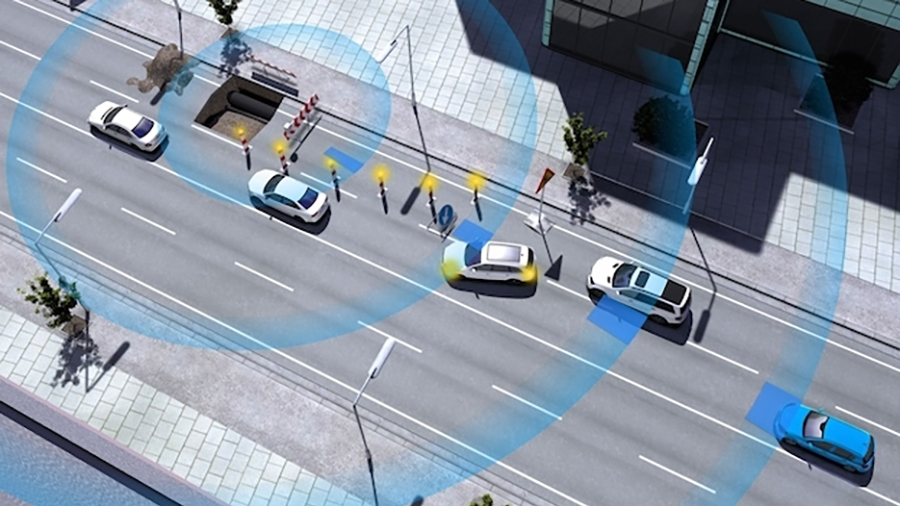

Our cities are getting smarter, fast. Improvements in hardware, software and infrastructure mean the tech revolution we've seen on a personal level - more data, more sensors, more personalisation - is beginning to spread out to our urban areas too.
From on-demand, autonomous bus services to smart streetlights that know where the best air quality is, there's lots happening. It's still early days for the smart city but these are just some of the innovations already happening in places across the world.
Autonomous public transport
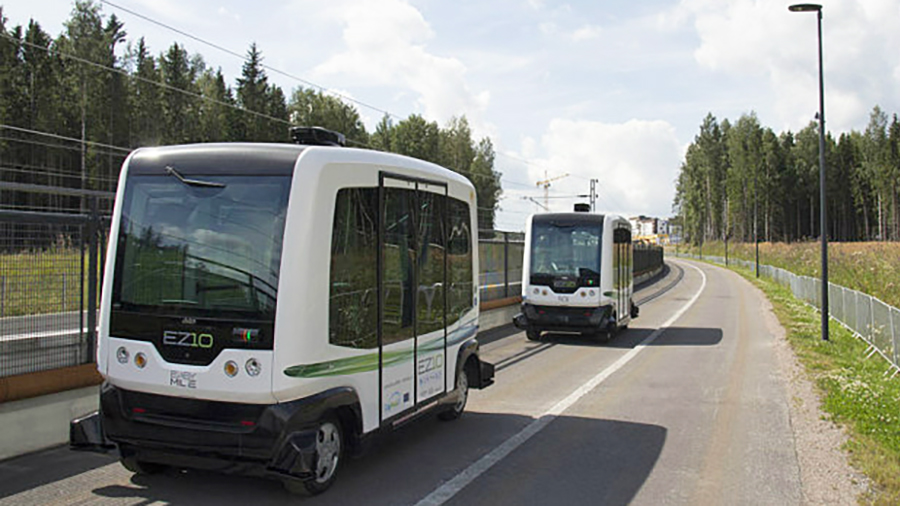
Much of the talk around self-driving tech has focused on cars, but of course it's also hugely useful for public transport - and we're likely to see autonomous buses and trains before cars, because these vehicles already know their routes and are more predictable.
Robot-controlled shuttle buses have already hit the streets in the Netherlands and futuristic-looking train pods in service at Heathrow have started appearing around London. These are limited trials but they're likely to expand and grow quickly.
In theory, autonomous buses, trains and pods that can drive themselves around will move much more efficiently than they would with human drivers, which should make it easier to get from one side of the city to the other, and lead to more accurate timetables too.
Then there's the infrastructure: smart traffic lights that adapt to the flow of traffic, pedestrians and cyclists are already here in some cities across the world, and allow city planners to respond to changing conditions and avoid congestion hotspots in real-time.
Wi-Fi everywhere

You won't need to worry about phone signal in the cities of the future, because there'll be Wi-Fi everywhere. A trial scheme in New York has already turned payphones into broadband hotspots, and initiatives like this are only going to spread in the coming years.
Sign up to the T3 newsletter for smarter living straight to your inbox
Get all the latest news, reviews, deals and buying guides on gorgeous tech, home and active products from the T3 experts
Sidewalk Labs, part of Alphabet (which owns Google), is one of the companies working towards embedding connectivity into the buildings and infrastructure all around us, and that kind of open access means city streets will eventually become one huge internet cafe.
Barcelona is getting in on the act too, and now has a network of 664 Wi-Fi points spread across the city that people can log into for free. Imagine how much faster, more widespread and reliable these schemes are going to become in 10 or 20 years' time.
"Barcelona City Council aims to encourage citizens to access the internet and make it easier for citizens to incorporate this technology into their everyday lives," say the local authorities, who have partnered with private firms to fund the Wi-Fi roll-out.
Smart sensors
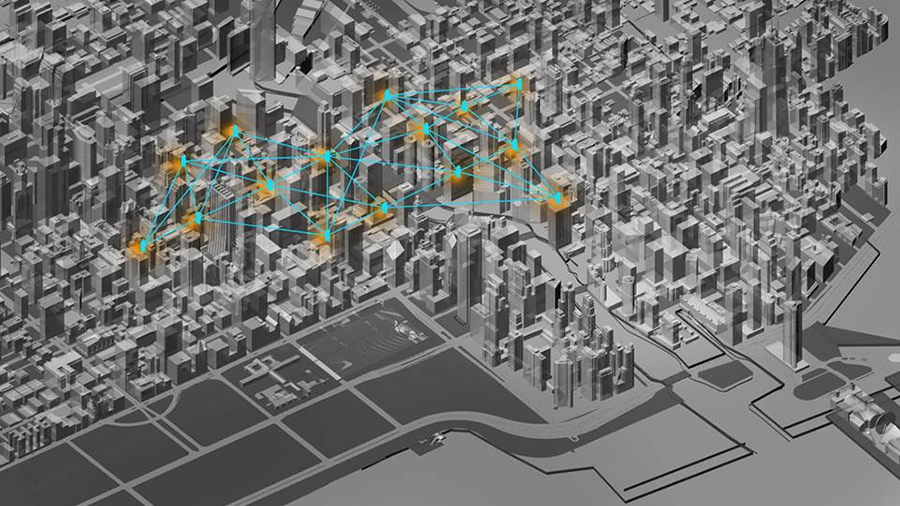
'Big data' might sound like a meaningless buzz phrase but it's crucial to the future of smart cities. Sensors embedded in infrastructure - from streetlights to office blocks - can help authorities monitor everything from air quality to the real-time flow of pedestrians.
Take the sensors fitted around Chicago this year, capable of measuring climate conditions, air quality, light, vibration, noise and the volume of passing traffic. It's like a fitness tracker for a city and the authorities can make informed decisions based on the data they get.
Add to that data collected from smartphones (once anonymised and aggregated, of course) and city planners can get a much better idea of the life of a city - from where the problem congestion points are to where noise levels are becoming an issue.
Our mobiles also open up opportunities for citizens to become more involved in their urban areas, through schemes like Open311. It enables local people to report traffic incidents, potholes, unsafe pavements and so on with a couple of taps on their phone.
Energy efficiency
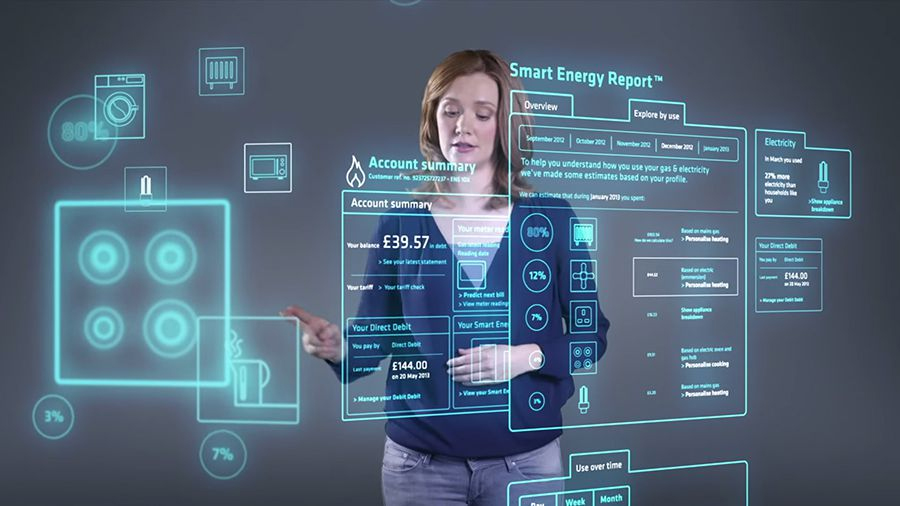
Energy efficiency is going to play a big role in the smart cities of the future and we're already seeing the early signs - take devices like the Nest thermostat or the smart meters being rolled out to every home in the UK, designed to minimise wasted energy.
New homes and offices are being built to higher environmental standards and a growing number of them are being powered by renewable energy sources too. Small energy management schemes like this one in Amsterdam will eventually be scaled up.
Again, sensors are key: if energy use can be more accurately monitored, energy production can be made more efficient. If a building is clever enough to know a warm spell is coming, for example, it can tweak the heating accordingly without the need for manual input.
Meanwhile, scientific advances are being made all the time in terms of energy storage, transfer and retention. Even something as simple as swapping streetlight bulbs or generating power from pavements can make a massive difference in a city's energy use.
Future innovations
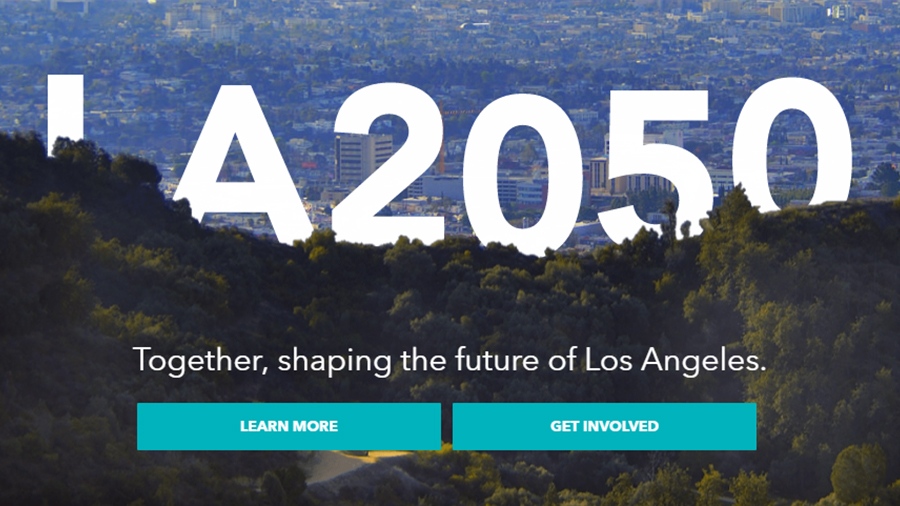
Of course there's still plenty more to come but we're definitely on the cusp of a revolution in smart city tech. We've pointed to numerous small-scale schemes already in place and these are going to grow and expand quickly in the years to come as the tech improves.
Take Google Fiber, for example - once super-high-speed broadband like this becomes available, it's easier for data to be collected and transmitted by city-wide sensors without the whole network grinding to a halt. The underlying technology will continue to advance.
When innovation strikes, change can be very fast indeed - look at the Uber platform, which has sprung up quickly through a simple app and the smartphones people already have with them. Now there's talk of on-demand public transport that turns up as you need it.
Specific city initiatives like LA 2050 are becoming increasingly common as authorities look to adapt the smart city template to their own specific urban environments - check out the innovations in your own area, as they might already be more advanced than you think.
- Like this? Read our take on the best electric car of 2016
Dave has over 20 years' experience in the tech journalism industry, covering hardware and software across mobile, computing, smart home, home entertainment, wearables, gaming and the web – you can find his writing online, in print, and even in the occasional scientific paper, across major tech titles like T3, TechRadar, Gizmodo and Wired. Outside of work, he enjoys long walks in the countryside, skiing down mountains, watching football matches (as long as his team is winning) and keeping up with the latest movies.

